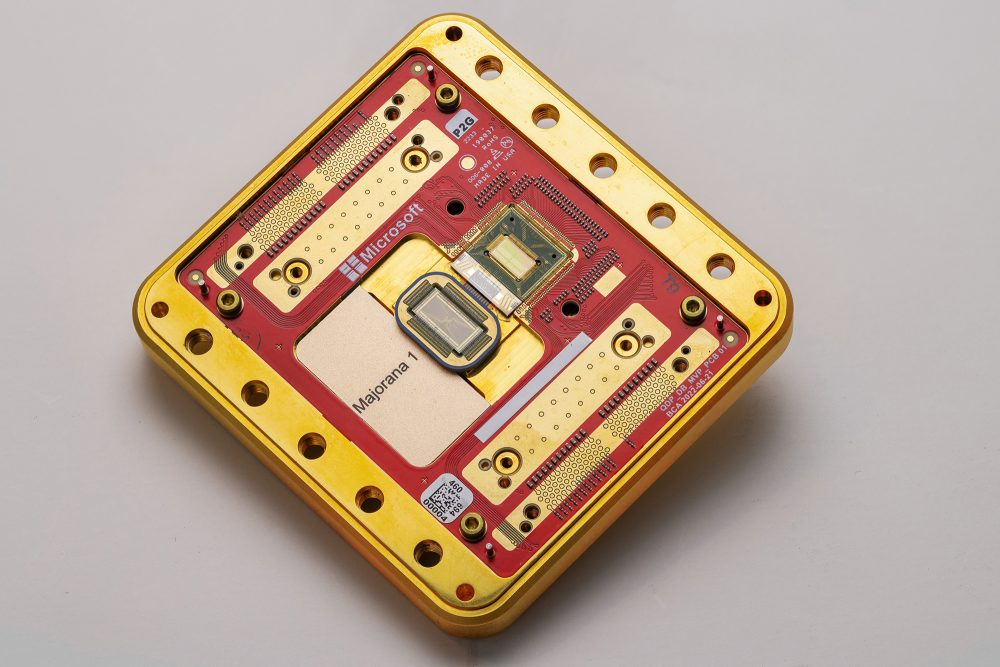" Microsoft Unveils Majorana 1: A Quantum Leap in Computing"

On February 19, 2025, Microsoft announced a significant milestone in quantum computing: the unveiling of Majorana 1, the world's first quantum processor powered by topological qubits. This breakthrough promises to accelerate the development of practical quantum computers, potentially bringing them into reality within years rather than decades.
¿What Is Majorana 1?
Majorana 1 is a quantum processing unit (QPU) developed by Microsoft, utilizing a novel approach based on topological qubits. Unlike traditional qubits, which are susceptible to environmental disturbances, topological qubits are designed to be inherently more stable and less prone to errors. This stability is achieved through the use of Majorana zero modes—exotic quasiparticles that are their own antiparticles—within a specially engineered material known as a topoconductor.
Technical Specifications
-
- Qubit Count:
Currently, Majorana 1 operates with 8 qubits, with plans to scale up to 1 million qubits in a compact 10 cm x 10 cm chip. -
- Material Composition:
The chip is constructed from an indium arsenide-aluminum hybrid, enabling superconductivity at extremely low temperatures. -
- Operating Temperature:
Approximately 50 millikelvin (-273.1°C), necessary to maintain quantum coherence.
Significance of the Breakthrough
The development of Majorana 1 addresses one of the primary challenges in quantum computing: error correction. Traditional qubits require complex error-correcting codes due to their fragility. In contrast, topological qubits offer a more robust solution, potentially reducing the overhead needed for error correction and making large-scale quantum computing more feasible.
According to Microsoft CEO Satya Nadella, this advancement could lead to the realization of utility-scale quantum computers within a few years, significantly impacting fields such as medicine, cybersecurity, and materials science.
Potential Applications
The capabilities of Majorana 1 open up transformative possibilities across various industries:
-
- Cryptography:
Developing quantum-resistant encryption methods to secure data against future quantum attacks. -
- Drug Discovery:
Simulating complex molecular interactions to accelerate the development of new pharmaceuticals. -
- Artificial Intelligence:
Enhancing machine learning algorithms through faster and more efficient computations. -
- Climate Modeling:
Improving the accuracy of climate predictions by processing vast datasets more effectively.

Skepticism and Challenges
Despite the excitement surrounding Majorana 1, some experts urge caution. The existence and manipulation of Majorana zero modes remain subjects of ongoing research, and definitive experimental validation is still required. Physicists like Vincent Mourik have expressed skepticism, emphasizing the need for further empirical evidence to confirm Microsoft's claims.
Future Outlook
Microsoft plans to integrate Majorana 1 into its Azure Quantum platform, providing researchers and developers access to this cutting-edge technology. The company aims to achieve 50 logical qubits by 2027 and scale up to 1,000 by 2030, paving the way for practical quantum applications in various sectors.
The unveiling of Majorana 1 marks a pivotal moment in the quest for practical quantum computing. By leveraging topological qubits, Microsoft has taken a significant step toward building scalable, error-resistant quantum systems. While challenges remain, this breakthrough brings us closer to unlocking the full potential of quantum technologies, promising transformative impacts across science and industry.




